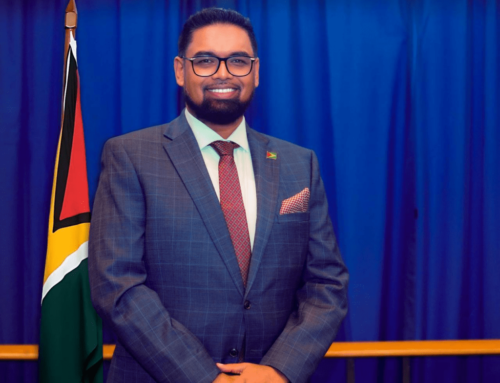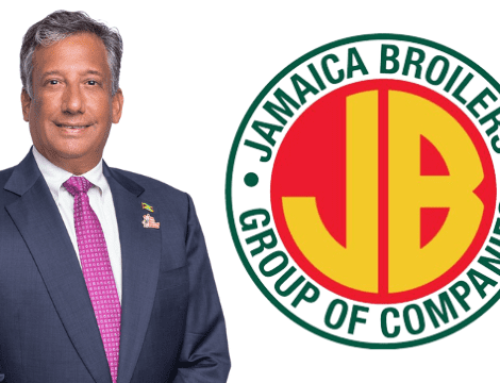[fusion_builder_container hundred_percent=”no” hundred_percent_height=”no” hundred_percent_height_scroll=”no” hundred_percent_height_center_content=”yes” equal_height_columns=”no” hide_on_mobile=”small-visibility,medium-visibility,large-visibility” status=”published” background_position=”center center” background_repeat=”no-repeat” fade=”no” background_parallax=”none” enable_mobile=”no” parallax_speed=”0.3″ video_aspect_ratio=”16:9″ video_loop=”yes” video_mute=”yes” border_style=”solid” padding_top=”0px” admin_label=”Video Intro” padding_bottom=”0px” type=”legacy”][fusion_builder_row][fusion_global id=”1510″][fusion_builder_column type=”1_1″ layout=”1_1″ align_self=”auto” content_layout=”column” align_content=”flex-start” content_wrap=”wrap” spacing=”” center_content=”no” link=”” target=”_self” min_height=”” hide_on_mobile=”small-visibility,medium-visibility,large-visibility” sticky_display=”normal,sticky” class=”” id=”” background_image_id=”” type_medium=”” type_small=”” order_medium=”0″ order_small=”0″ spacing_left_medium=”” spacing_right_medium=”” spacing_left_small=”” spacing_right_small=”” spacing_left=”” spacing_right=”” margin_top_medium=”” margin_bottom_medium=”” margin_top_small=”” margin_bottom_small=”” margin_top=”0px” margin_bottom=”” padding_top_medium=”” padding_right_medium=”” padding_bottom_medium=”” padding_left_medium=”” padding_top_small=”” padding_right_small=”” padding_bottom_small=”” padding_left_small=”” padding_top=”” padding_right=”” padding_bottom=”” padding_left=”” hover_type=”none” border_sizes_top=”0px” border_sizes_right=”0px” border_sizes_bottom=”0px” border_sizes_left=”0px” border_color=”” border_style=”solid” border_radius_top_left=”” border_radius_top_right=”” border_radius_bottom_right=”” border_radius_bottom_left=”” box_shadow=”no” box_shadow_vertical=”6px” box_shadow_horizontal=”0px” box_shadow_blur=”36″ box_shadow_spread=”0″ box_shadow_color=”rgba(68,64,90,0.1)” box_shadow_style=”” background_type=”single” gradient_start_color=”” gradient_end_color=”” gradient_start_position=”0″ gradient_end_position=”100″ gradient_type=”linear” radial_direction=”center center” linear_angle=”180″ background_color=”rgba(0,0,0,0)” background_image=”” background_position=”left top” background_repeat=”no-repeat” background_blend_mode=”none” animation_type=”” animation_direction=”left” animation_speed=”0.3″ animation_offset=”” filter_type=”regular” filter_hue=”0″ filter_saturation=”100″ filter_brightness=”100″ filter_contrast=”100″ filter_invert=”0″ filter_sepia=”0″ filter_opacity=”100″ filter_blur=”0″ filter_hue_hover=”0″ filter_saturation_hover=”100″ filter_brightness_hover=”100″ filter_contrast_hover=”100″ filter_invert_hover=”0″ filter_sepia_hover=”0″ filter_opacity_hover=”100″ filter_blur_hover=”0″ last=”true” border_position=”all” first=”true”][fusion_imageframe image_id=”694|full” max_width=”800px” sticky_max_width=”” style_type=”” blur=”” stylecolor=”” hover_type=”liftup” bordersize=”” bordercolor=”” borderradius=”8px” align_medium=”none” align_small=”none” align=”center” margin_top=”” margin_right=”” margin_bottom=”” margin_left=”” lightbox=”no” gallery_id=”” lightbox_image=”” lightbox_image_id=”” alt=”” link=”” linktarget=”_self” hide_on_mobile=”small-visibility,medium-visibility,large-visibility” sticky_display=”normal,sticky” class=”” id=”” animation_type=”” animation_direction=”left” animation_speed=”0.3″ animation_offset=”” filter_hue=”0″ filter_saturation=”100″ filter_brightness=”100″ filter_contrast=”100″ filter_invert=”0″ filter_sepia=”0″ filter_opacity=”100″ filter_blur=”0″ filter_hue_hover=”0″ filter_saturation_hover=”100″ filter_brightness_hover=”100″ filter_contrast_hover=”100″ filter_invert_hover=”0″ filter_sepia_hover=”0″ filter_opacity_hover=”100″ filter_blur_hover=”0″ dynamic_params=”eyJlbGVtZW50X2NvbnRlbnQiOnsiZGF0YSI6InBvc3RfZmVhdHVyZWRfaW1hZ2UiLCJlbGVtZW50X2NvbnRlbnQiOiJodHRwOi8va2FsaWxhaHJleW5vbGRzLmNvbS93cC1jb250ZW50L3VwbG9hZHMvMjAxOS8wOS9ibG9nLXBvc3QtMy5qcGciLCJiZWZvcmUiOiIiLCJhZnRlciI6IiIsImZhbGxiYWNrIjoiIn19″]http://kalilahreynolds.com/wp-content/uploads/2019/09/blog-post-3.jpg[/fusion_imageframe][/fusion_builder_column][/fusion_builder_row][/fusion_builder_container][fusion_builder_container hundred_percent=”no” hundred_percent_height=”no” hundred_percent_height_scroll=”no” hundred_percent_height_center_content=”yes” equal_height_columns=”no” hide_on_mobile=”small-visibility,medium-visibility,large-visibility” status=”published” background_position=”center center” background_repeat=”no-repeat” fade=”no” background_parallax=”none” enable_mobile=”no” parallax_speed=”0.3″ video_aspect_ratio=”16:9″ video_loop=”yes” video_mute=”yes” border_style=”solid” padding_top=”0px” padding_bottom=”0px” admin_label=”Content” type=”legacy”][fusion_builder_row][fusion_builder_column type=”1_1″ layout=”1_1″ spacing=”2%” center_content=”no” link=”” target=”_self” min_height=”” hide_on_mobile=”small-visibility,medium-visibility,large-visibility” class=”” id=”” background_color=”#ffffff” background_image=”” background_image_id=”” background_position=”left top” background_repeat=”no-repeat” hover_type=”none” border_color=”” border_style=”solid” border_position=”bottom” box_shadow=”yes” box_shadow_blur=”34″ box_shadow_spread=”0″ box_shadow_color=”rgba(68,64,90,0.07)” box_shadow_style=”” animation_type=”” animation_direction=”left” animation_speed=”0.3″ animation_offset=”” first=”true” last=”true” element_content=”” padding_top=”0%” padding_right=”8%” padding_bottom=”7%” padding_left=”8%” border_radius_top_left=”8px” border_radius_top_right=”8px” border_radius_bottom_left=”8px” border_radius_bottom_right=”8px” box_shadow_vertical=”4px” box_shadow_horizontal=”0px” margin_bottom=”0px” margin_top=”” border_sizes_bottom=”0px”][fusion_title title_type=”text” rotation_effect=”bounceIn” display_time=”1200″ highlight_effect=”circle” loop_animation=”off” highlight_width=”9″ highlight_top_margin=”0″ before_text=”” rotation_text=”” highlight_text=”” after_text=”” hide_on_mobile=”small-visibility,medium-visibility,large-visibility” sticky_display=”normal,sticky” class=”” id=”” content_align_medium=”” content_align_small=”” content_align=”left” size=”2″ font_size=”42px” animated_font_size=”” fusion_font_family_title_font=”” fusion_font_variant_title_font=”” line_height=”” letter_spacing=”-1px” text_shadow=”no” text_shadow_vertical=”” text_shadow_horizontal=”” text_shadow_blur=”0″ text_shadow_color=”” margin_top_medium=”” margin_bottom_medium=”” margin_top_small=”” margin_bottom_small=”” margin_top=”” margin_bottom=”” margin_top_mobile=”” margin_bottom_mobile=”” text_color=”” animated_text_color=”” highlight_color=”” style_type=”default” sep_color=”” animation_type=”” animation_direction=”left” animation_speed=”0.3″ animation_offset=”” dynamic_params=”eyJlbGVtZW50X2NvbnRlbnQiOnsiZGF0YSI6InBvc3RfdGl0bGUiLCJlbGVtZW50X2NvbnRlbnQiOiIiLCJpbmNsdWRlX2NvbnRleHQiOiJubyIsImJlZm9yZSI6IiIsImFmdGVyIjoiIiwiZmFsbGJhY2siOiIifX0=” /][fusion_text columns=”” column_min_width=”” column_spacing=”” rule_style=”” rule_size=”” rule_color=”” hue=”” saturation=”” lightness=”” alpha=”” content_alignment_medium=”” content_alignment_small=”” content_alignment=”” hide_on_mobile=”small-visibility,medium-visibility,large-visibility” sticky_display=”normal,sticky” class=”” id=”” margin_top=”” margin_right=”” margin_bottom=”” margin_left=”” fusion_font_family_text_font=”” fusion_font_variant_text_font=”” font_size=”” line_height=”” letter_spacing=”” text_transform=”” text_color=”” animation_type=”” animation_direction=”left” animation_color=”” animation_speed=”0.3″ animation_delay=”0″ animation_offset=””]
Everyone likes to talk about generational wealth, but no one likes to talk about HOW you’re gonna pass on your wealth to the next generation.
We’ve seen too many family feuds turning deadly because people are fighting over “dead lef”. That’s why estate planning is so important.
And before you jump up and say, “well, me nuh have nutten fi dead lef”, don’t.
Your estate can be made up of a wide range of assets. Yes, there’s the house and cars, but there’s also your stocks and bank account. What about any artwork, jewellery, life insurance, pensions, or even debt? Do you want to leave your family to pay back what you owe?
Your relatives will need to know what to do with all of that stuff. That’s why you should consider a will or a trust. Maybe even both.
A will is a legal document that spells out exactly how you want your affairs to be handled, and how your assets should be distributed after you die.
Do you want to be buried or cremated? Are you splitting your money 50/50 between your children or 70/30? Should the children or your spouse get the house? Who should get your school ring?
All of this can be outlined in your will. It spells out exactly what YOU want to happen after your death.
A trust is different.
With a trust, you – the trustor- give someone else- the trustee- the right to hold your assets for a third party.
Imagine it as a piggy bank. You put all your money, land, bank accounts- everything into this piggy bank then you give it to a friend. It’s now their piggy bank UNTIL your children or spouse, whoever you decide, is ready to take it.
There are different types of trusts. We’re probably most familiar with funded trusts or ‘trust funds’, that specifically hold money.
But again, assets can be a range of things. You can still spell out how you want things to be distributed.
With trust funds, typically the trustor would set an age at which your child gets access and complete control of the money.
One of the big differences between wills and trusts is that wills take effect after death, while trusts can be used during life and after death. So if you were to become incapacitated for any reason, a trust would be good because someone is designated to look after your assets.
They also work together because in your will, you can dictate that a trust be set up, especially if you have small kids.
And another thing! Don’t think you’re too young to have a will or trust. Like I said earlier, even if it’s only a bank account, you should specify who you want to have access to that money! You’d be surprised how many young people die and their families can’t access the money in their accounts.
So, go through the process, get a lawyer, get the paperwork, list out your assets, decide who your beneficiaries will be and what they will receive, and have the documents officially signed and stamped.
I recommend contacting a law firm that specialises in estate planning and having them walk you through the process.
[/fusion_text][fusion_separator style_type=”default” sep_color=”” border_size=”” icon=”” icon_circle=”” icon_circle_color=”” alignment=”center” hide_on_mobile=”small-visibility,medium-visibility,large-visibility” class=”” id=”” top_margin=”30px” /][fusion_portfolio layout=”grid” picture_size=”default” text_layout=”boxed” grid_box_color=”#f6f4f5″ grid_element_color=”” grid_separator_style_type=”double|dashed” grid_separator_color=”#eae1e4″ columns=”2″ column_spacing=”24″ portfolio_masonry_grid_ratio=”” portfolio_masonry_width_double=”” one_column_text_position=”below” equal_heights=”yes” number_posts=”2″ portfolio_title_display=”default” portfolio_text_alignment=”default” padding_top=”5%” padding_right=”30px” padding_bottom=”5%” padding_left=”30px” filters=”no” pull_by=”category” cat_slug=”taking-stock” exclude_cats=”” tag_slug=”” exclude_tags=”” pagination_type=”none” hide_url_params=”on” offset=”0″ orderby=”date” order=”DESC” content_length=”excerpt” excerpt_length=”27″ strip_html=”default” carousel_layout=”title_below_image” scroll_items=”” autoplay=”no” show_nav=”yes” mouse_scroll=”no” hide_on_mobile=”small-visibility,medium-visibility,large-visibility” class=”” id=”” animation_type=”fade” animation_direction=”down” animation_speed=”0.6″ animation_offset=”” /][/fusion_builder_column][/fusion_builder_row][/fusion_builder_container]










Leave A Comment